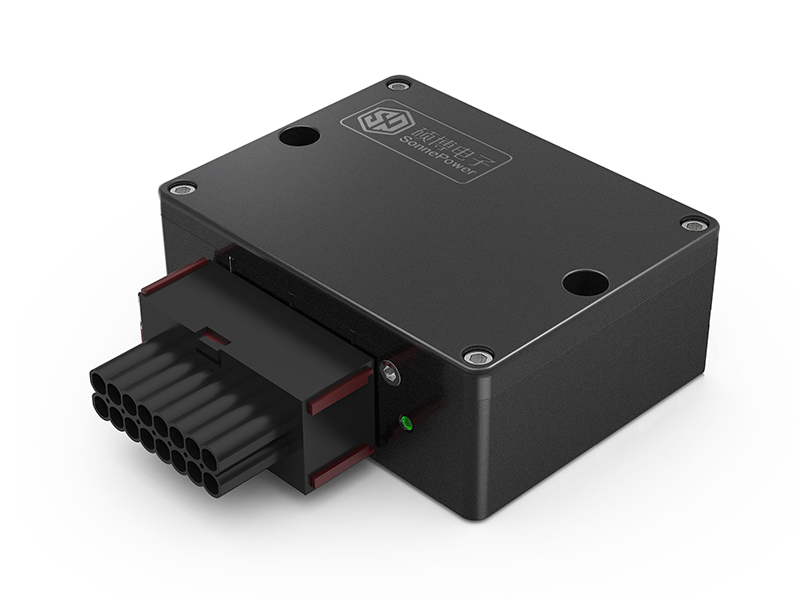In today's fast-paced world, the demand for off-highway vehicles has surged. These remarkable machines are the backbone of construction, agriculture, mining, and a wide range of industrial activities. When it comes to optimizing their performance, one cannot ignore the significance of the Off-Highway Vehicle Controller. In this comprehensive guide, we will delve into the intricacies of Off-Highway Vehicle Controllers, unlocking the secrets to elevate your machinery's capabilities.

What is an Off-Highway Vehicle Controller?
An Off-Highway Vehicle Controller, commonly referred to as OHVC, is the brain behind the brawn of heavy-duty equipment. This sophisticated electronic component plays a pivotal role in ensuring the seamless operation and control of off-highway vehicles such as excavators, bulldozers, and agricultural machinery. It acts as the central nervous system, regulating vital functions for enhanced performance.
Enhancing Efficiency and Precision
One of the key aspects of Off-Highway Vehicle Controllers is their ability to enhance operational efficiency and precision. These controllers utilize advanced sensors, software, and hardware components to optimize the performance of heavy machinery. By precisely managing engine performance, transmission, and hydraulic systems, OHVCs contribute to reduced fuel consumption and increased productivity.
Safety First
Safety is paramount in off-highway operations. OHVCs are designed to ensure the utmost safety for operators and bystanders. Through real-time monitoring of machine behavior, they can detect anomalies and automatically intervene to prevent accidents. The integration of safety protocols in Off-Highway Vehicle Controllers is a testament to their critical role in modern industrial settings.
Environmental Responsibility
In today's eco-conscious world, environmental responsibility is a top priority. OHVCs are equipped with technology that complies with stringent emission standards, reducing the carbon footprint of off-highway vehicles. By optimizing fuel combustion and minimizing harmful emissions, these controllers contribute to a cleaner and more sustainable environment.
The Power of Customization
Off-Highway Vehicle Controllers are not one-size-fits-all solutions. They can be customized to suit the unique requirements of various industries and applications. This adaptability is a game-changer for businesses aiming to maximize their operational efficiency.
Tailored Performance Profiles
Through advanced software configurations, OHVCs can be fine-tuned to meet specific performance requirements. Whether you need to prioritize power, fuel efficiency, or a balance of both, these controllers can be adjusted to achieve your desired outcome.
Integration with Telematics
In the age of data-driven decision-making, Off-Highway Vehicle Controllers can be seamlessly integrated with telematics systems. This integration allows for real-time monitoring, diagnostics, and remote management, ensuring that your machinery is always operating at its peak.
The Future of Off-Highway Vehicle Controllers
As technology continues to evolve, so do Off-Highway Vehicle Controllers. The future promises even more advanced features and capabilities, further transforming the way industries operate.
Automation and Autonomy
The integration of artificial intelligence and machine learning in OHVCs will pave the way for autonomous operation. Imagine heavy machinery capable of executing tasks with minimal human intervention, greatly reducing labor costs and enhancing productivity.
Predictive Maintenance
Predictive maintenance will become a reality with Off-Highway Vehicle Controllers. These controllers will analyze machine data to predict potential failures and schedule maintenance before a breakdown occurs, minimizing downtime and repair costs.
Conclusion
In the world of off-highway vehicles, the Off-Highway Vehicle Controller is the unsung hero that empowers industries to achieve greater efficiency, safety, and sustainability. As technology continues to advance, the role of OHVCs will only become more vital. Understanding the capabilities and potential of these controllers is crucial for businesses seeking to stay competitive in the ever-evolving landscape of heavy machinery.
More details please contact SonnePower




Comments
Please Join Us to post.
0